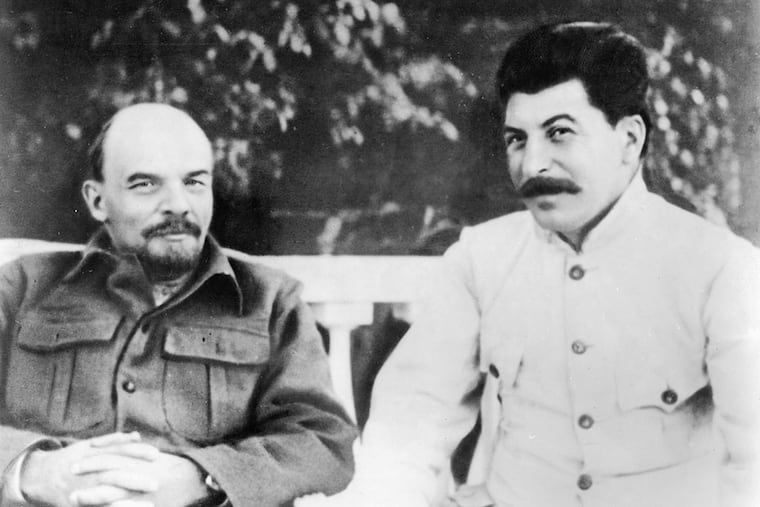70-year-old 'Animal Farm' is still worth a read
By John Rossi This month marks the 70th anniversary of two significant but vastly different events in the history of the 20th century. On Aug. 15, 1945, Japan surrendered, finally ending the worst war in human history. Two days later, halfway around the world, came the publication of George Orwell's seminal deconstruction (one is tempted to say "destruction") of the myths of the Russian revolution - his brilliant satire Animal Farm.

By John Rossi
This month marks the 70th anniversary of two significant but vastly different events in the history of the 20th century. On Aug. 15, 1945, Japan surrendered, finally ending the worst war in human history. Two days later, halfway around the world, came the publication of George Orwell's seminal deconstruction (one is tempted to say "destruction") of the myths of the Russian revolution - his brilliant satire Animal Farm.
Orwell called his little book - it totals about 30,000 words - a "fairy tale." Using the concept of a beast fable, he had farm animals represent the major figures of the Russian Revolution. Orwell's indictment of the evils and failures of communist totalitarianism in his development of Animal Farm was both ingenuous and ingenious.
He represented the key events of the revolution in an unforgettable fashion. The leaders were pigs, creatures that Orwell considered the cleverest of the farm animals. They were clearly modeled on the leading Bolsheviks: the old boar who spelled out the meaning of the revolution was a combination of Karl Marx and Vladimir Lenin. Napoleon, the pig who became the farm's dictator, was Joseph Stalin.
The other animals of the farmyard represented the workers and the peasants, with distinctive features emphasized. The easily led sheep, for instance, representing the gullible public, were blind followers of Napoleon, constantly chanting, "Napoleon is always right." The powerful farm horse, Boxer, was the working class, always trying to work harder for the revolution but ultimately betrayed by Napoleon and sold to the slaughterhouse.
Orwell also showed a sense of humor. When the pigs seize control of the farm, they discover sides of ham hanging in the icebox. Napoleon orders them buried, but only after a formal funeral. Orwell also has the farm cat disappearing when there is work to be done and inviting the birds to come to his side because "we are all comrades now."
The seven commandments of Animaldom proclaimed by Napoleon paralleled the Soviet constitution, with all the rights and guaranteed liberties that were never fulfilled and were constantly revised. Most famously, "All animals are equal" was transformed by Napoleon into "But some are more equal than others."
Any doubt about the effectiveness of Orwell's indictment of the communist revolution could be dispelled by the difficulty he had getting the book published. It was turned down for being politically insensitive to the Russians by four publishers in England and perhaps a dozen in the United States.
One American publisher, after reading the manuscript, told Orwell that it was impossible to sell animal stories at that time. Another publisher wrote that he would bring out the book if Orwell changed the pigs to some other less offensive animal so as not to offend the Russians, a comment Orwell labeled "imbecilic."
Reviews in England and the United States, where Animal Farm appeared a year later, were enthusiastic. Orwell suddenly found that he was famous. Animal Farm was not only a runaway best seller in England, it was also chosen by the American Book of the Month Club as one of its selections, selling a half-million copies in a single year.
For years, the book was standard reading in high school and college literature courses, where many readers first discovered it. And Animal Farm remains popular today, having sold more than 11 million copies over the past seven decades.
Orwell, a sharp critic of his own work, was pleased with Animal Farm, writing that it was the first book in which he believed he had fused "political purpose and artistic purpose in one whole." Many commentators regard it as Orwell's best work because, unlike the grimmer and better-known Nineteen Eighty-Four, it has, through the lens of suffering animals, a sense of humanity about it.
What especially cheered the ill Orwell - he was slowly dying of tuberculosis - was the report from one of his friends that his children loved the book not for its political message, but as a classic fairy tale. Orwell knew then that he had a winner.
Animal Farm is still worth a read 70 years after its initial appearance. It is not just a demolition of the idea of communism, but also an antidote to those who continue to believe that some twisted ideology is a rationale for violent revolution.